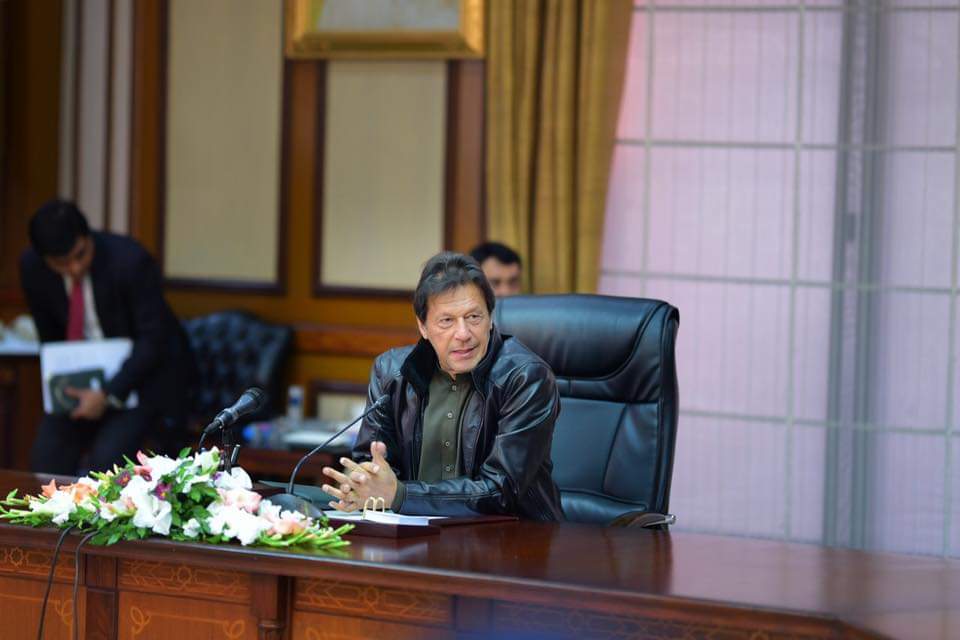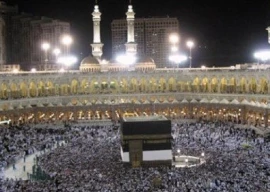
“Money laundering poses a serious threat to the country and we need to take measures to combat it in all its forms. Governmental organizations should expedite measures against money laundering as it poses a serious threat to country’s future,” Imran said on Wednesday.
“Those involved in money laundering do not deserve any leniency,” he added. Imran Khan was addressing a key meeting which reviewed measures taken by the government to combat money laundering.
The Inter-Services Intelligence (ISI) deputy general also participated in the meeting on special invitation. Finance Minister Asad Umar, PM’s Special Assistant on Accountability Shahzad Akbar and the PM’s Special Assistant on Media Iftikhar Durrani were also present in the moot.
The interior secretary briefed the PM on the measures taken against money laundering. Khan said money laundering had caused an irreparable loss to the country and because of it the nation is now stuck knee deep in debt.
He also directed all the stakeholders to double their efforts in countering the money laundering practices by ensuring that criminals involved in such practices should not go scot-free.
“The people who embezzled money filled their pockets and caused serious financial problems to the country as the stolen funds were sent abroad. They should not be spared at any cost,” he said.
Strategic Economic Framework
Giving in-principle approval to the draft Strategic Economic Framework between Pakistan and Turkey, the PM also directed for early finalisation of the framework aimed at transforming the bilateral relations between the two countries into a broader growing strategic economic relationship.
He also directed relevant ministries to vigorously pursue this framework and put in place strong institutional arrangements for its implementation, once finalized here in a meeting.
The Economic Affairs Division secretary gave a detailed briefing on contents and contours of the proposed framework. He said during the PM's visit to Turkey in the first week of January, the top leadership of the two sides had agreed to transform the bilateral relationship into a long-term strategic trade, investment and economic relationship based on the principles of reciprocity and fairness.
On his return from Turkey, the PM constituted a ten-member ministerial committee headed by Finance Minister Asad Umar to finalize the proposed framework.
Subsequently, two meetings of this ministerial committee were chaired by the finance minister and ideas and proposals were received from the 16 relevant ministries of the federal government.
After due consideration and examination, proposals were identified, evaluated and incorporated into a wholesome draft strategic economic framework. Umar said it is an integrated framework that has been built in view of the best interest of Pakistan, capitalising on mutual complementarities and key advantages of the two economies, the framework so finalized will serve as the overarching strategic policy framework integrating all facets of existing bilateral economic cooperation into a single platform.
The framework seeks to build a strategic economic framework with Turkey in a globally evolving geo-strategic environment and through this instrument tangible measurable results will be pursued.
It will encompass broader areas of bilateral cooperation like trade, textiles, investment, industries and production, energy, economy/ banking and finance, aviation, agriculture, social sectors and tourism.
Pakistan through this framework is not looking for aid but trade, investment and technology for enhancing industrial productivity of its economy. There are strong mutual complementarities between the two economies.
Pakistan can also benefit from modern industrial base and technological advancement specifically in auto sector, steel sector, value added textiles and tourism. The country can meet Turkish economy's requirements such as agricultural products, raw materials, textile materials and so on.
The joint ventures between Turkey and Pakistan in multiple sectors including value added textile and leather industry can produce quality products for export to European Union and East Asian markets.
After the PM’s approval, the government of Pakistan is now sharing this draft framework with the Turkish side for their review and consideration before the same is finalized between the two countries in the coming weeks.


1732538123-0/BeFunky-collage-(90)1732538123-0-165x106.webp)

1732536148-0/ariana-(1)1732536148-0-165x106.webp)

1732530440-5/Copy-of-Untitled-(85)1732530440-5-270x192.webp)

1732534225-0/Express-Tribune-(13)1732534225-0-270x192.webp)








COMMENTS
Comments are moderated and generally will be posted if they are on-topic and not abusive.
For more information, please see our Comments FAQ